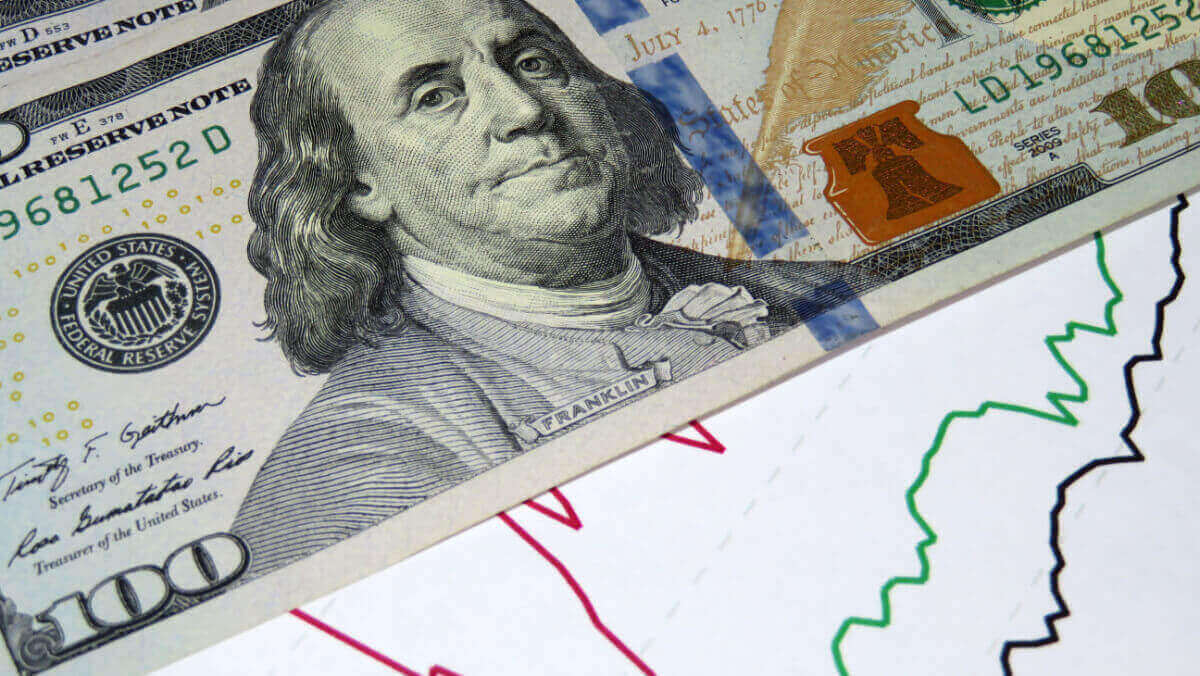Wednesday Feb 14 2024 12:50

6 min

The market woke up again to the fact that bad stuff can happen. There had been a kind of capitulation feeling about things as bears gave up, year-end price targets were being raised and everyone kind of assumed that the only way was up. It was starting to feel different this time.
But US inflation figures yesterday reminded investors that this is still a market, and it doesn’t just go up. Bonds, equities, gold, Bitcoin — it all sold off following the consumer price inflation (CPI) report as it dismantled the March cut narrative entirely and pushed markets into thinking that the Federal Reserve will not be ready to ease policy until the summer, with cut bets for May down from about 50% to 30%.
Core inflation was stronger than expected in January. Core CPI rose 0.39% from December, leaving the year-on-year rate steady at 3.9%. Seems innocuous enough, but we have to look at what the market and the Fed are eyeing up, which is the annualised trend.
The 3-month annualised rate rose to 4% from 3.3%, whilst the 6-month annualised rate was 3.7% from 3.2%. And most worrying of all for the Fed was the supercore inflation rate. It’s hard not to think the Fed is looking at the 0.9% increase in the supercore rate of inflation — the biggest uptick since April 2022. This pushed the yearly supercore rate to 4.4% in January from 3.9% in December, an eight-month high.
It confirmed my sense that disinflation is going to be very lumpy, unpredictable and not conducive to the Fed cutting as swiftly or as deeply as the market has been betting on. Meanwhile UK inflation was steady at 4% vs the forecasted 4.2%, further weighing on sterling, which had already fallen to a week-low against the broadly stronger dollar after the US inflation report.
Goldman Sachs was not so worried, saying:
“[The CPI] largely reflected start-of-year price increases for labour-reliant categories such as medical services, car insurance and repair, and daycare, and we assume inflation in these categories returns to the previous trend on net in February and March.”
The bad news on US inflation hit sentiment pretty hard. The Dow Jones Industrial Average fell 525 points, or 1.4%, its biggest one-day fall in a year — indicative of the lack of volatility we have been seeing as markets contented themselves about the pace of hikes and subsequent pivot to cuts. The S&P 500 index dropped 1.4% as well, whilst the Nasdaq fell 1.8%.
UK-based chip designer Arm Holdings fell 20% as people thought the rally was likely over-optimistic. Lyft soared 60% then returned it following a mistake in the earnings, lasting up 15% after-hours.
Yields flew with the 2-year Treasury rallying 18.7 basis points to 4.654%, the biggest jump in a year. The 10-year yield rose above 4.3% to its highest since December, helping to push real yields down hard to weigh on the gold price, which declined sharply to test $1,987, its lowest since mid-Dec when we had those dovish comments from Jay Powell.
UBS raised its price target on Nvidia stock to $850 per share from $580, sounding bullish heading into earnings next week.
But get this:
“Customer discussions confirm Nvidia’s lead times have come in substantially over the past few months, meaning shipment slots are still available in (the second half of 2024),” analysts at UBS wrote. “Normally, this is bad, but demand for AI compute capacity is still so strong, in the near term, we think this just points to significant upside potential to shipments [and] revenue.”
So, supply exceeds demand, but this is all right because it’s Nvidia... Sure thing. It’s different this time!
Meanwhile here’s the Databricks CEO: “Over the next year, prices for these chips, known as graphic processing units, will plummet, throwing a wrench into the business models of numerous major companies and startups.”
And we had that Barclays credit research note pointing out that a lot of Nvidia demand may actually be its own startups (h/t Bryce Elder).
Credit analyst Sandeep Gupta wrote:
“Though the total amount of funding and the specific structure of the deals (cash, stock, tech, or services) are unknown, Nvidia has become linked with a host of companies that we expect are using Nvidia technology. CoreWeave, an Nvidia-backed cloud computing startup not only uses Nvidia chips but has secured $2.3bn in financing using Nvidia H100 GPUs as collateral.
This financing will be used to purchase more advanced chips, most probably from Nvidia. It is estimated that CoreWeave was Nvidia’s 7th largest customer of H100 GPUs in 2023, purchasing 40k of the processors for 4.5% of total revenues (an H100 GPU sells for $30k). Meta and Microsoft tied for number 1 at 150k each.”
“The core takeaway is that an increasing share of NVDA’s revenues from the past two quarters can potentially be attributed to startups NVDA has funded itself. These companies operate in robotics, machine learning, SaaS, and cloud computing, all sectors reliant on AI chips.
This self-funded demand is a risk because it is dependent on NVDA’s own investment spending and potentially misinterprets independent demand for NVDA chips because NVDA is essentially funding its own customers.”
When considering shares, indices, and bonds for trading and price predictions, remember that trading CFDs involves a significant degree of risk and could result in capital loss.
Past performance is not indicative of any future results. This information is provided for informative purposes only and should not be construed to be investment advice.